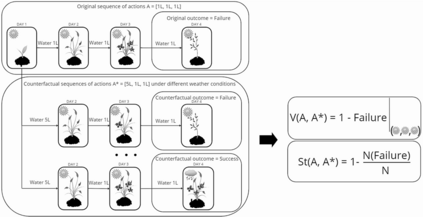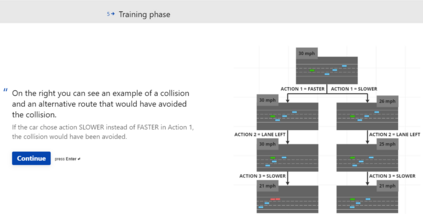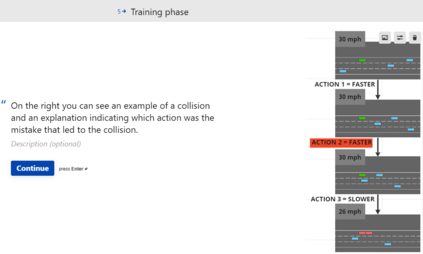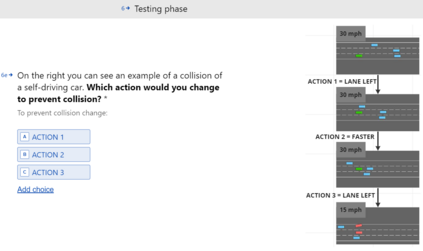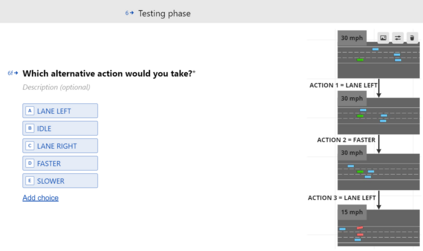Understanding how failure occurs and how it can be prevented in reinforcement learning (RL) is necessary to enable debugging, maintain user trust, and develop personalized policies. Counterfactual reasoning has often been used to assign blame and understand failure by searching for the closest possible world in which the failure is avoided. However, current counterfactual state explanations in RL can only explain an outcome using just the current state features and offer no actionable recourse on how a negative outcome could have been prevented. In this work, we propose ACTER (Actionable Counterfactual Sequences for Explaining Reinforcement Learning Outcomes), an algorithm for generating counterfactual sequences that provides actionable advice on how failure can be avoided. ACTER investigates actions leading to a failure and uses the evolutionary algorithm NSGA-II to generate counterfactual sequences of actions that prevent it with minimal changes and high certainty even in stochastic environments. Additionally, ACTER generates a set of multiple diverse counterfactual sequences that enable users to correct failure in the way that best fits their preferences. We also introduce three diversity metrics that can be used for evaluating the diversity of counterfactual sequences. We evaluate ACTER in two RL environments, with both discrete and continuous actions, and show that it can generate actionable and diverse counterfactual sequences. We conduct a user study to explore how explanations generated by ACTER help users identify and correct failure.
翻译:暂无翻译


